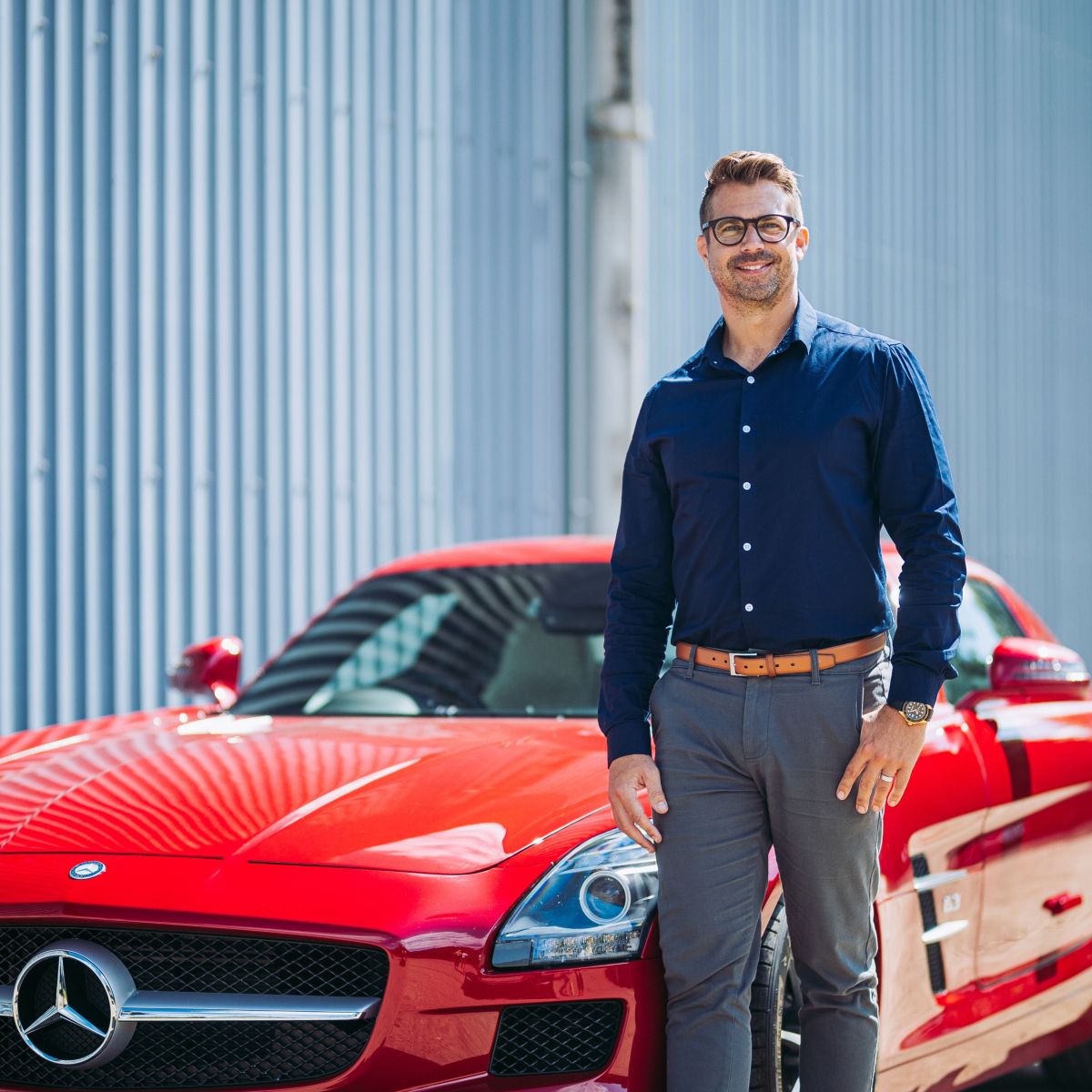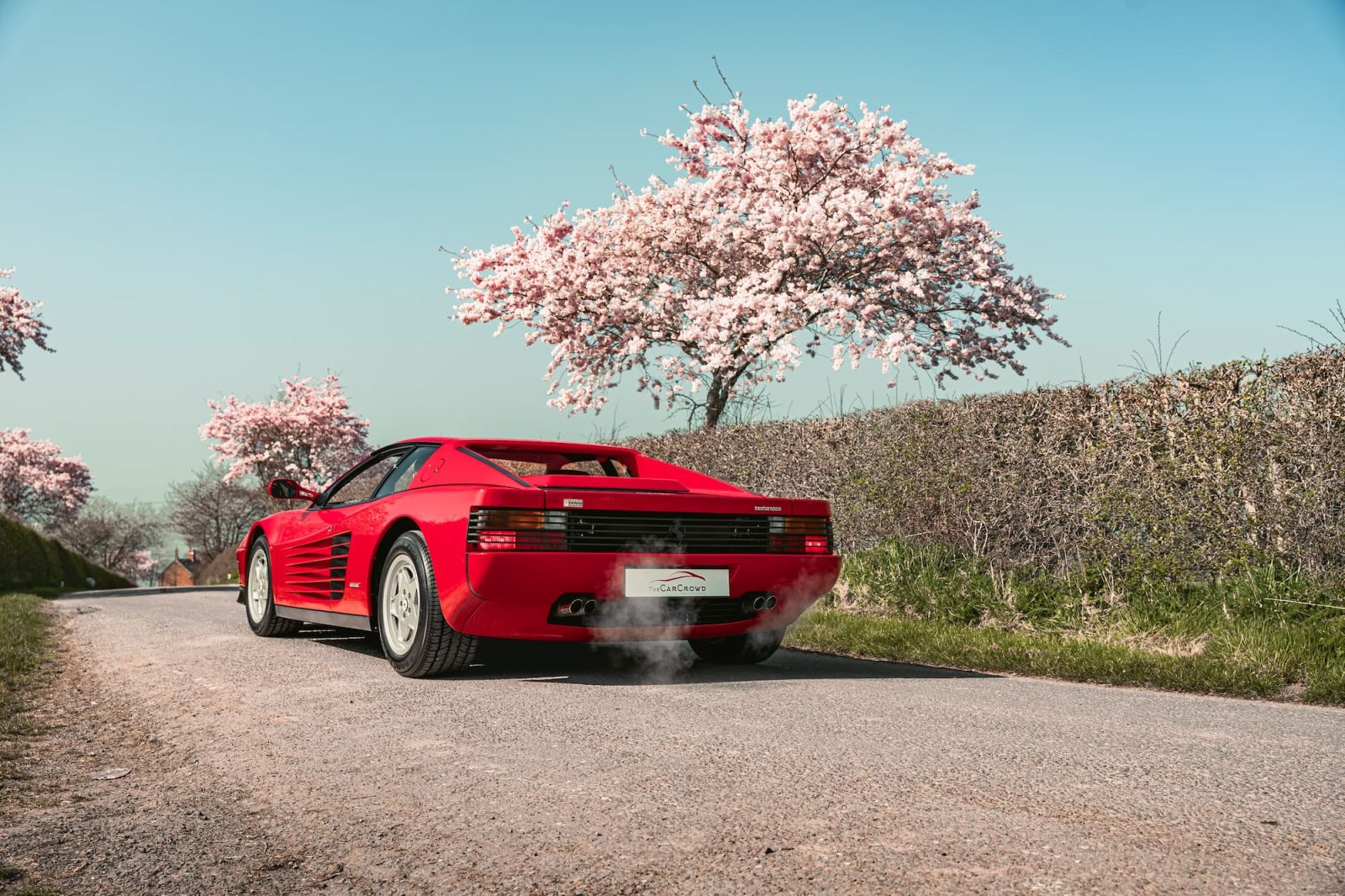Alt Investments
Turning Classic Car Passion Into Returns – A New Play On Collectables

The excitement – for some people – of owning a classic car is nothing new, but the ways that people who want a taste of the action and, hopefully, an investment return from it, are being changed by new technology. We talk to a UK-based firm that re-launched in 2025 to cater for demand from family offices and UHNW individuals.
A website has a bright red Ferrari F40 car at the top, on what
seems to be a desert road. Nevada or somewhere in the Middle
East, maybe. Further below there’s a photo of a white and blue
Ford GT40 (of the sort that won Le Mans in the mid-60s); there's
a Porsche GT3RS, all in white with a blue logo along the
side. Another photo shows a gunmetal grey Audi R8 V10 – all
Germanic power and style – and there’s an Aston Martin
V12 Vantage, of the sort that might be driven by James Bond. For
those of a certain mindset, they make the heart
beat faster.
But these cars aren’t going to spend all their time on the
tarmac, although they won’t all be sitting idle. They’re
investment vehicles, as it were, and part of a new twist in how
people can make money through a fractional ownership model, as
well as via direct property.
Created in 2019 by David Spickett (pictured), CEO, TheCarCrowd,
based in the UK, says it provides a way for individuals to build
a collection of cars on their own, or join with other members via
a syndicate. In the latter case, a person can “take the
wheel,” so to speak, for as little as £2,000 ($2,709). And
with Rachel Reeves, Chancellor of the Exchequer, eyeing how to
squeeze even more revenue out of the UK public, it is notable
that returns from classic car investments don’t – at least yet –
carry capital gains tax. (A classic car is typically at least two
decades’ old.)
With collectables such as fine wine, whisky, watches, jewellery,
fine art, even first edition books and musical instruments adding
colour to the sometimes dour business of investment, it was only
a matter of time before collectable cars cosied up to the
data-rich world of the internet.
Spickett, who has a background in finance and asset management –
stints at Lloyds Banking Group, McKinsey, Capgemini and Unipart,
and the logistics business – realises that what he’s
doing seems like a dream job. But as everyone in this area ks,
there’s a lot of hard work involved.
“It is very fulfilling,” he told WealthBriefing in a
recent interview. “We have seen a lot of enquiries from people
who want to diversify into something else,” he said.
In 2023, TheCarCrowd generated overall investment returns of 15.8
per cent, and in 2024, at 12.7 per cent. This performance is even
more impressive when the wider collectable car market saw an
overall shrinkage of around 6 per cent.
This is a large sector, although dwarfed by the mainstream equity
market. For example, according to Statista in 2023, based on the
US, UK and German sectors, it estimated that the global classic
car market revenue was $31.6 billion dollars for 2022, with an
expected growth rate of 9.6 per cent annually until 2026. Price
performance can vary, and it appears that certain brands stand
out. For example, HAGI (Historic Automobile Group International)
produces indices of what classic cars fetch. Its HAGI Top Index
in June was down 1.93 per cent since January; however, the HAGI P
Index (this tracks Porsche cars) is up 5.95 per cent; the HAGI F
Index (Ferraris) is up 1.64 per cent. When Ferrari and Porsche
cars are stripped out, the HAGI Top Index is down 8.29 per
cent.
Growth
Spickett, who works with a total of five full-time staff, said
the UK-based business has a 16,000 square foot “museum” in
Nottinghamshire which has raised £1.25 million in a
capital-raising seed round. So far, TheCarCrowd hasn’t gone in
for a noisy marketing campaign; much of the awareness generated
is via word of mouth and business networks. “We feel a bit like
it’s one of the best kept secrets” Spickett says, despite its
platform now boasting nearly 1,000 active investors.
This year, TheCarCrowd re-launched to cater for demand from
family offices and ultra-high net worth investors; it
incorporates a new CGT-free syndication structure.
Spickett has motoring in his blood – his family forebears were
car collectors and became involved in auctions. Starting in
his financial sector career, Spickett worked in the US for a few
years, and saw the success there of the Rally Road collectables
investment app and the Masterworks online Art investment
platform. He was inspired: Spickett started thinking about
creating something linked to cars, and in the UK.
“There was just nothing like it in the UK,” he said.
After a baptism of fire through the pandemic, which forced
Spickett to be more “online” with TheCarCrowd than he’d have
wanted, the business continued, held its capital raising, and is
in a new phase of growth, he said.
The firm argues that cars can be traded globally – these
marques are renowned across the world, and car investments have
low annualised volatility.
Services that are provided, depending on what clients opt for,
include portfolio consulting, asset curation, setting
up portfolios – for example using limited companies for
that purpose – custody, asset realisation, and finally,
the ability to drive the investor's car as much or as little as
preferred.
There’s a 10 per cent fee based on the appreciation in value of a
car – the “carry fee” – and an annual management fee of around 2
per cent to pay for keeping the cars in mint condition, storing
them and insurance. The same fee structure applies for those
investing directly on their own or in a syndicate.
All syndicated assets are held in a bare trust where the
beneficiary (or beneficiaries) has an immediate and absolute
right to both the capital and income of the trust. Typical
holding periods for a car investment are three to five years;
there have been instances where a person exited the investment
sooner than that.
All syndicated assets are held in trust but private or direct
owners working with the firm's private office can select
from direct ownership, LLC, trust or within their limited
company, depending on what is best for their financial planning
and tax strategy.
“We are very data-driven…this is about trying to avoid the heart
ruling the head,” he said.
“We look at wide factors and various sources [of data] and
amalgamate them to see what marques are appreciating or
depreciating,” he said. The firm then produces a car shortlist,
then whittles this down into a small selection
before purchasing starts.
A big “value-added” feature of this business model is the work
that TheCarCrowd does in scrutinising cars, avoiding those that
might have been tampered with, or even faked.
This is not a market for novices. As the firm says in the fine
print at the foot of its website, it is a company registered in
England and Wales and is also a Shariah Compliance Certified
business – which shows how it has been set up to appeal to
those from a variety of perspectives. The private syndicates and
direct private investments aren’t protected by the Financial
Conduct Authority. This is an area where those who want to get
involved must understand the risks.
But for those who do, this is an interesting twist on
enthusiasm for tapping into the glamour and fun of owning,
fractionally or outright, some of the most beautiful automative
machines around.

Ferrari Testarossa